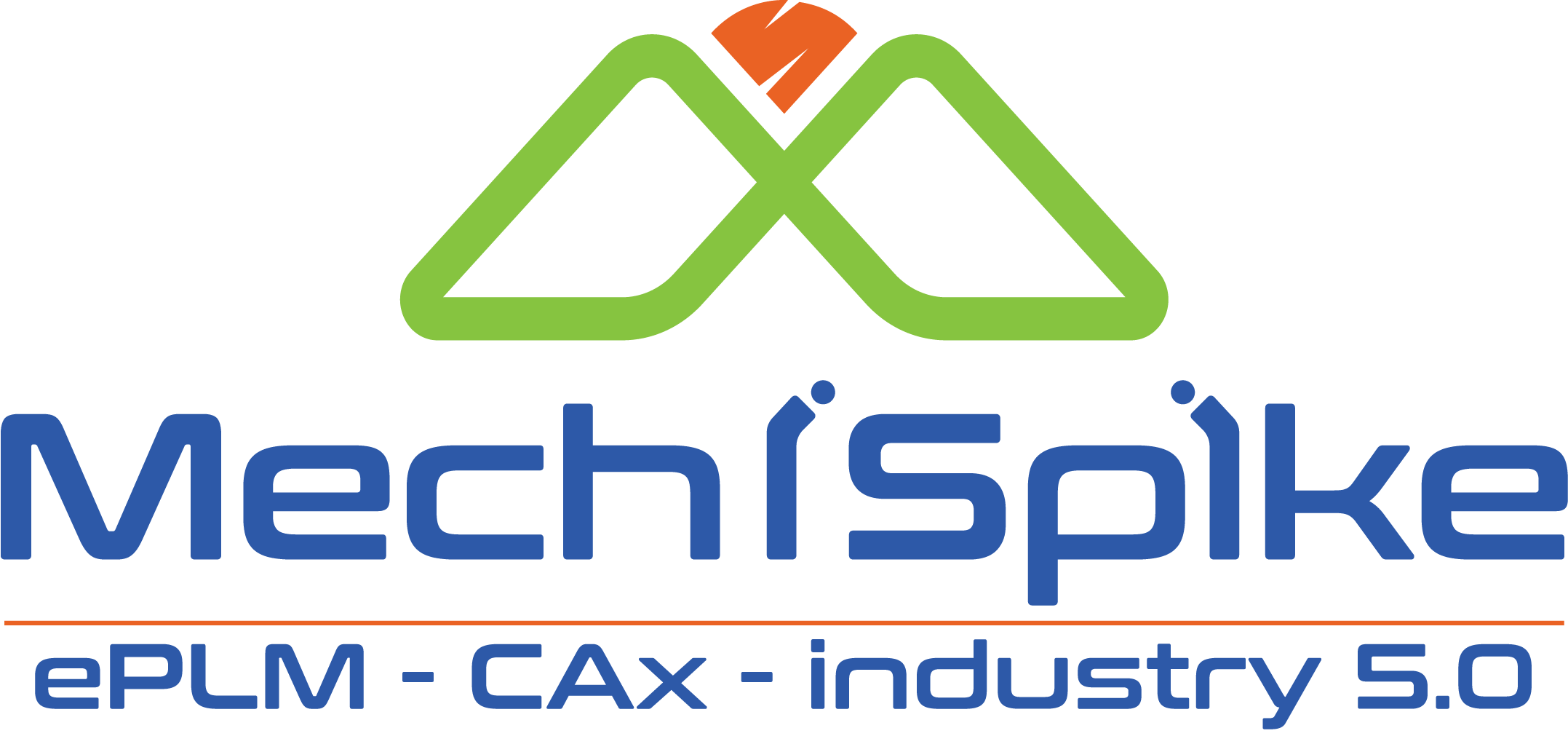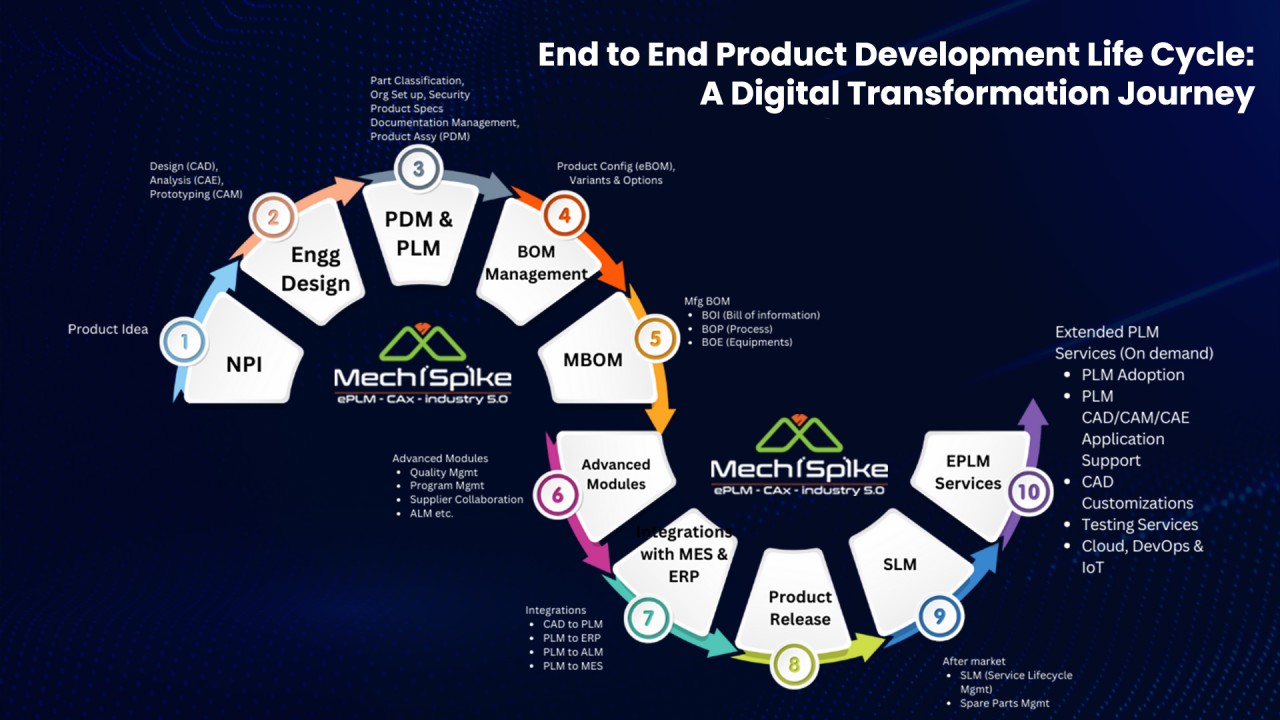
Top 4 Reasons Why PLM Implementations Fail
Product Lifecycle Management (PLM) systems have emerged as a critical component in modern businesses, helping organizations streamline their product development processes, enhance collaboration, and manage complex data. However, despite the immense potential and benefits of PLM, many implementations falter and fail.
In this article, we will explore the primary reasons why PLM implementations often fall short of expectations.
1) Poor PLM Adoption
One of the most common reasons for PLM implementation failures is poor adoption within the organization. Even the most robust PLM system is ineffective if it is not embraced and used effectively by employees.
Poor PLM adoption can manifest in several ways:
- Lack of User Training: Inadequate training and education on how to use the PLM system can lead to confusion and resistance among users.
- Inadequate Change Management: A lack of change management strategies to ease the transition into new PLM processes can result in friction and reluctance to adopt the system.
- Failure to Address User Concerns: If the concerns and feedback of users are not addressed, they may resist using the system and develop workarounds, rendering the PLM system redundant.
- Complex Interfaces: Overly complex or unintuitive interfaces can deter users from engaging with the PLM system.
Successful PLM adoption requires an emphasis on user experience, training, and effective change management to ensure that employees understand the benefits of the system and are motivated to use it.
2) Over Customization
While customization is often necessary to align a PLM system with an organization’s specific needs, excessive customization can be detrimental.
Over-customization can lead to implementation failures due to:
- Increased Costs: Customization can be costly and time-consuming. Excessive customizations can lead to budget overruns and extended timelines.
- Complexity: Over-customized PLM systems tend to be more complex and challenging to manage and maintain. They may require more resources and expertise.
- Limited Scalability: Highly customized systems may struggle to adapt to changes and scale as the organization grows.
- Resource Dependency: Organizations may become dependent on external consultants for ongoing support and maintenance of highly customized systems.
Balancing customization is essential to ensure that the PLM system addresses the organization’s unique needs without becoming overly complex.
3) Semi-Skilled Team
The success of a PLM implementation heavily relies on the skills and expertise of the team responsible for its deployment.
Common issues in this regard include:
- Semi-Skilled Team Members: Having team members who lack the required skills or knowledge about PLM systems can lead to errors, inefficiencies, and inadequate problem-solving.
- Wrongly Mapped Skill Sets: Misaligned skill sets or job roles can result in team members performing tasks they are not qualified for, further compromising the implementation.
- Ineffective Team Collaboration: Poor collaboration within the team or between different teams can hinder the successful implementation of PLM processes.
To ensure a successful PLM implementation, organizations must invest in training and development for team members and ensure that skill sets are appropriately aligned with the project’s requirements.
4) Generic IT Companies Implementing PLM
Choosing generic IT service providers over PLM-focused experts is a significant factor contributing to PLM implementation failures.
Generic IT companies may lack the domain-specific expertise required for successful PLM deployment.
Here are the reasons why:
- Lack of Domain Knowledge: Generic IT companies may not have the in-depth understanding of the complexities and intricacies of PLM systems and processes.
- Cookie-Cutter Solutions: These providers may offer standardized solutions that do not cater to the unique needs of an organization’s PLM processes.
- Communication Challenges: Effective communication is vital in PLM implementations. Generic IT companies may struggle to comprehend an organization’s specific requirements, leading to misunderstandings and misaligned expectations.
- Limited Innovation: PLM is closely tied to innovation in product design, manufacturing, and supply chain management. Generic IT providers may not have the capability to provide innovative solutions or keep up with the rapidly evolving PLM technology landscape.
Conclusion:
In summary, addressing the factors that lead to PLM implementation failures is crucial for the successful deployment and utilization of PLM systems.
To achieve success:
- Prioritize User Adoption: Focus on user training, change management, and effective communication to ensure that employees understand the benefits of the PLM system and are motivated to use it.
- Strive for the Right Level of Customization: Find the balance between customization and complexity to ensure that the PLM system aligns with the organization’s needs without becoming overly intricate.
- Build a Skilled Team: Invest in training and development for team members, and ensure that skill sets are aligned with the project’s requirements to improve problem-solving and efficiency.
- Choose Niche Experts: Engage niche experts with domain-specific knowledge and experience in PLM to provide tailored solutions, ensure compliance, and drive innovation.
By addressing these critical factors, organizations can enhance the chances of successful PLM implementation and fully harness the potential benefits of PLM systems, ultimately improving product development processes, enhancing collaboration, and achieving their business goals.
With MechiSpike, you can leverage your PLM to the fullest.
Subscribe Now to get this Weekly Newsletter delivered in your Inbox directly :
Our mission : To equip you with the knowledge and tools you need to drive value, streamline operations, and maximize return on investment from your PLM initiatives.
Over the coming weeks and months, PLM ROI Newsletter will guide you through a comprehensive roadmap to help you unlock the full potential of your PLM investment.
We are committed to be your trusted source of knowledge and support throughout your PLM journey. Our team of experts and thought leaders will bring you actionable insights, best practices, case studies, and the latest trends in PLM.
Subscribe Now to get this weekly series delivered into your Inbox directly, as and when we publish it.
To your PLM success!
Warm regards,
Visit Us: www.mechispike.com



Overall good